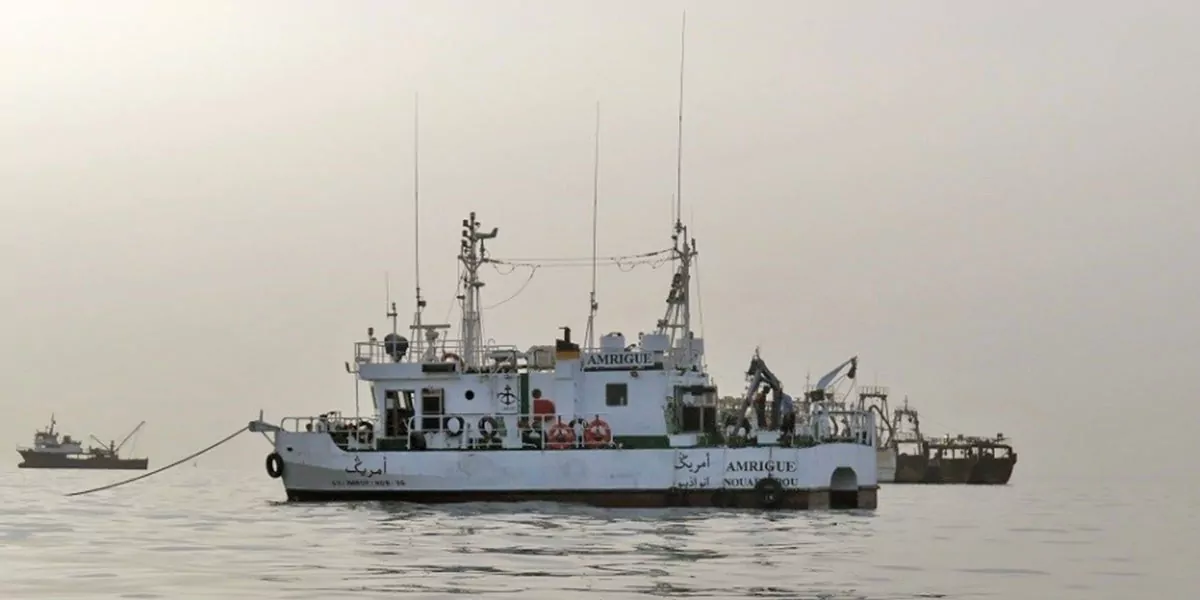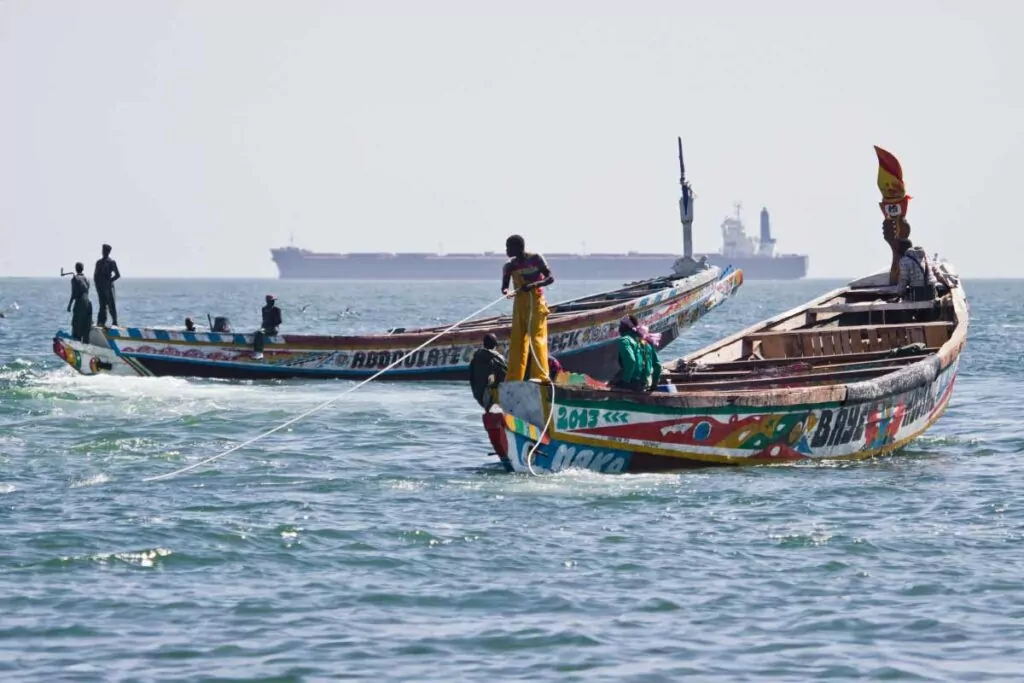The kick-off workshop for the WASP project (West-African Biodiversity under Pressure) was held in February 2020 at the headquarters of the Mauritanian research institute IMROP in Nouadhibou. Besides the official project partners (IMROP, Nature Mauritanie and Senckenberg Institute), University of Algarve and authorities of the Banc d’Arguin National Park were also present to share major highlights of research results and upcoming activities.
The Mauritanian research institute IMROP recruited Mariem Ahmed Homeren, a trainee in Geographic Information Systems (GIS). In collaboration with the Senckenberg Institute and together with her superior, Ely Beibou, she will support the development of an open-source GIS. The system will provide data in map form on species occurrences from the continental slope to the Banc d’Arguin. The aim is to identify particularly sensitive areas, such as coral reefs at depths of 400 to 600 meters, which serve as nursery grounds for numerous species of fish and cephalopods, in order to make recommendations to IMROP and the Ministry of the Environment and Fisheries in Mauritania for justified protected areas. This system gives access to policymakers and marine resource users to the latest scientific insights into the Vulnerable Marine Areas of Mauritanian waters.
Right after the meetings, scientists from the University of Algarve, Senckenberg Institute and IMROP set sail to the Banc d’Arguin National Park, onboard IMROP’s research catamaran “Amrique”. During three days, more than a hundred samples were taken onboard the Amrique and the traditional sailboats (Launches) of the Imraguen. It is planned to perform a complete identification including a DNA barcode on the samples. All data and samples will be sent to IMROP and serve as a basis for a national reference collection (Voucher Collection). As an important capacity building measure, it is intended to contribute to raising awareness for the large marine ecosystems in Mauritania.


